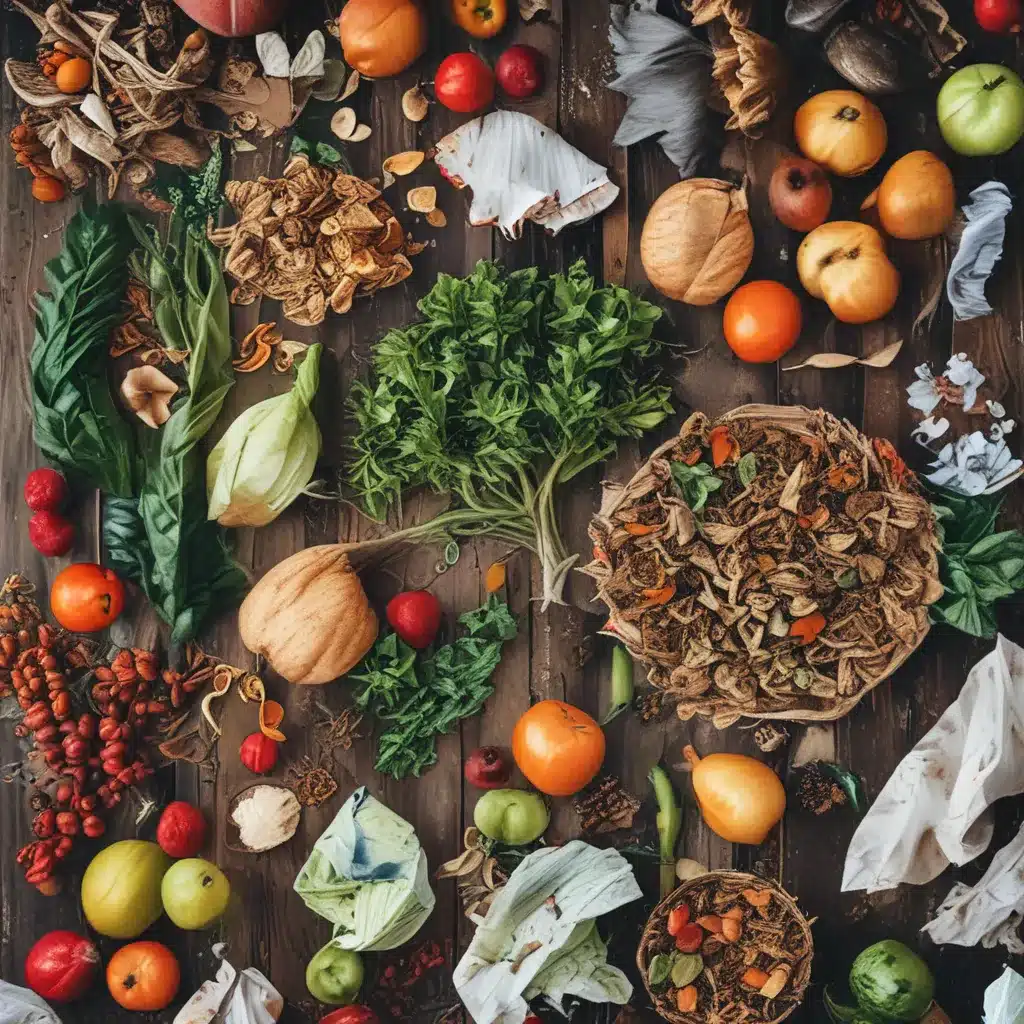
Cultivating Connections: Thornapple CSA’s Embrace of the Circular Economy
As a member of the Thornapple Community-Supported Agriculture (CSA) service, I’ve been consistently amazed by the innovative ways they strive to create a truly sustainable food system. Their latest initiative, “Closing the Loop,” has completely transformed my understanding of what it means to run a waste-conscious, circular operation.
Thornapple CSA’s commitment to the circular economy is not just a passing trend – it’s a deep-rooted philosophy that permeates every aspect of their business. From the moment the soil is tilled to the final delivery of their bountiful produce, they’re constantly seeking out new ways to minimize waste and maximize value.
Cultivating Compost: Thornapple’s Organic Waste Transformation
One of the most impressive aspects of Thornapple’s circular economy strategies is their approach to organic waste. Instead of simply tossing aside the leaves, stems, and other plant matter that would traditionally be considered “waste,” they’ve set up an impressive composting system that transforms these materials into nutrient-rich soil amendments.
According to the City of Grand Rapids’ Fiscal Plan for 2024, effective composting can divert up to 30% of organic waste from landfills, reducing greenhouse gas emissions and conserving valuable landfill space. Thornapple CSA has embraced this approach wholeheartedly, with their on-site composting facility playing a crucial role in closing the loop.
I recently had the opportunity to tour the composting operation, and I was amazed by the level of care and attention to detail that goes into it. The team meticulously monitors the temperature, moisture, and oxygen levels of the compost piles, ensuring the perfect conditions for the natural decomposition process to work its magic. The result? Rich, nutrient-dense soil that is then reintegrated into the farm’s growing beds, nourishing the next generation of crops.
Upcycling for Abundance: Thornapple’s Innovative Repurposing
But Thornapple CSA’s circular economy efforts don’t stop at composting. They’ve also developed a knack for upcycling – transforming what might otherwise be considered waste into valuable new products and resources.
Take, for example, their partnership with a local woodworking cooperative. The cooperative collects the wooden pallets and crates used to deliver produce to Thornapple’s distribution centers, giving them a second life as handcrafted furniture and home decor items. According to the Canadian Forest Service, this kind of creative repurposing can reduce waste by up to 50% compared to traditional disposal methods.
But the upcycling doesn’t stop there. Thornapple CSA also works with a local textile artist who transforms the cotton bags used to package their produce into unique and stylish tote bags. These bags are then sold in the on-site farm store, providing an additional revenue stream and giving new life to materials that would otherwise end up in the landfill.
Closing the Loop: Thornapple’s Holistic Approach to Sustainability
Thornapple CSA’s commitment to the circular economy extends far beyond just composting and upcycling. They’ve woven sustainability into every facet of their operation, from their energy-efficient greenhouse and solar-powered irrigation system to their water-saving drip irrigation methods.
According to the New Brunswick Nursing Home Design Standards, incorporating sustainable building practices can reduce energy and water consumption by up to 30%. Thornapple CSA has embraced this approach, ensuring that their operations are as environmentally friendly as possible.
But the real magic happens when all of these elements come together to create a truly closed-loop system. The compost produced from their organic waste nourishes the soil, which in turn produces bountiful harvests. The upcycled materials provide additional revenue streams and reduce the need for new resource extraction. And the energy-efficient systems minimize the ecological footprint of the entire operation.
It’s a beautiful, symbiotic relationship that embodies the very essence of the circular economy. And as a member of the Thornapple CSA community, I can’t help but feel a sense of pride and wonder at the incredible work they’re doing.
Branching Out: Thornapple CSA’s Outreach and Education
But Thornapple CSA’s commitment to sustainability doesn’t stop at their own farm gates. They’ve also made it a priority to share their knowledge and inspire others to adopt circular economy practices.
Through their community outreach programs, they regularly host workshops and educational events, teaching local residents and other farmers the ins and outs of composting, upcycling, and sustainable agriculture. They’ve even partnered with nearby schools to incorporate these lessons into their curricula, empowering the next generation of sustainability champions.
And the impact of their efforts is already being felt. Thornapple CSA’s website is flooded with testimonials from community members who have been inspired to start their own compost piles or seek out upcycled products for their homes. It’s a ripple effect that extends far beyond the boundaries of their own farm, solidifying their status as a true leader in the circular economy movement.
Cultivating a Circular Future: Thornapple CSA’s Ongoing Commitment
As I reflect on my time with Thornapple CSA, I’m struck by the sheer depth of their commitment to creating a more sustainable food system. Their embrace of the circular economy is not just a passing phase, but a deeply ingrained ethos that shapes every aspect of their operations.
From the rich, nutrient-dense compost that nourishes their crops to the upcycled products that find new life in the hands of their community, Thornapple CSA is continuously discovering new ways to close the loop and minimize waste. And as they continue to share their knowledge and inspire others to follow in their footsteps, I can’t help but feel optimistic about the future of our food system.
After all, if one small CSA can have such a profound impact, imagine what might be possible if more farms and businesses adopted a similar circular mindset. It’s a future that I, for one, am excited to be a part of, and I can’t wait to see what Thornapple CSA has in store for us next.



